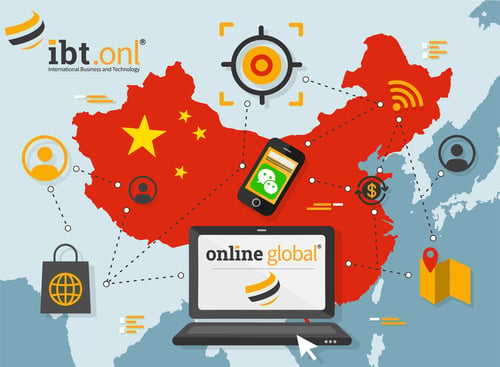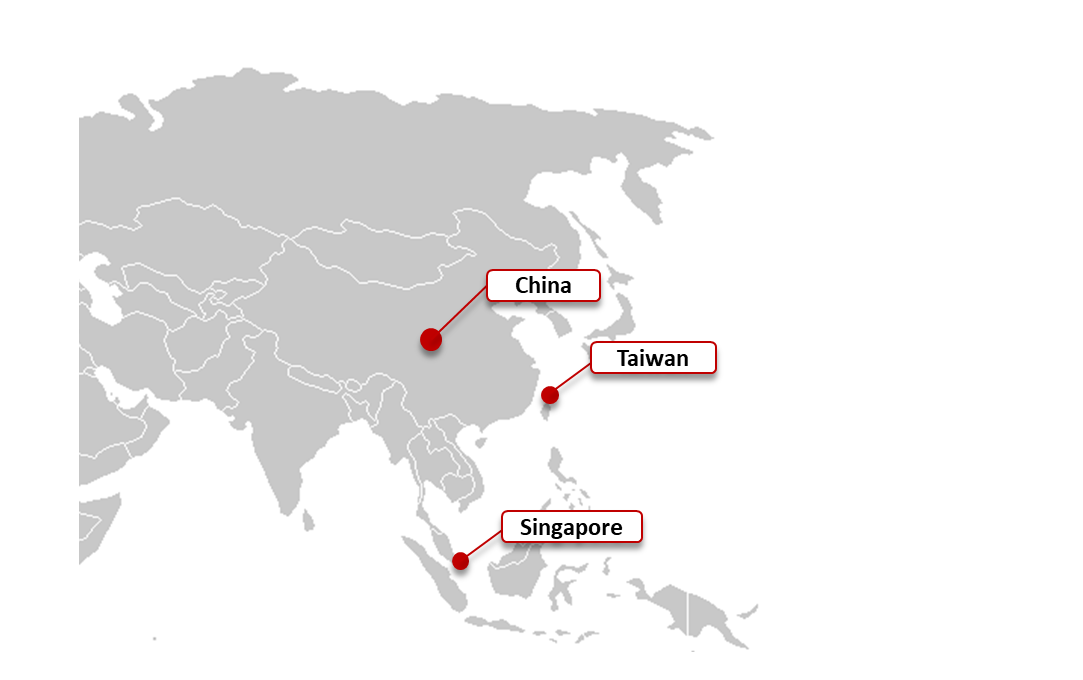We all know that China has the world's largest population (1.4 billion and counting) and that it is the world’s largest exporter. But China is also one of the world’s leading importers of goods. This means that for companies with export ambitions, China is too big to ignore. Companies looking to export in today’s global economy know that many of their prospective clients, suppliers, competitors… are probably Chinese. So the good news is that a website localized for the China market, gives exporters great access to this huge market. The key is to make sure that website is perfectly localized – allowing your company to be found, understood and able to do business in China. Language is a critical criterion for a localized Chinese website. This blog sets out some of our key findings of using online tools to help exporters access and succeed in China.

First, some of the basics. China is a huge market by any standard. Here’s how some of the basic metrics compare with its largest single trading partner, the USA.
Overview: Chinese and US economy

What do you need to know about Chinese?
Chinese is the official language of just 3 countries: China, Taiwan and Singapore. This means that despite having some 1.2 billion native speakers, the most of any language in the world, it does not qualify as a global trade language. To be classified as major trade language, a language needs to be spoken by a minimum of 100 million persons AND be the official language in 10 or more countries. But while it is not an official global trade language, companies looking to do business in China can’t ignore it – you need a Chinese website.

Linguistic differences with English
Linguistic distance is a great way to show how different two languages are and one way to measure the linguistic distance is to evaluate the level of difficulty a person who speaks English has, to learn the Chinese language. Keeping this in mind, studies show a linguistic distance of 0.67 between English and Chinese. This gives us a first insight on how different both languages are. As a comparison, the linguistic distance of English to Spanish is only 0.44. The Chinese differences to English are on the same level as Arabic. To get a deeper look into where we can find these differences and the impact on your localized Chinese website, we can divide it into different factors: characters & grammar, context & market expectations, company name and search engines.
Characters & Grammar
There is very little overlap between Chinese and English. Besides an entirely different grammar, syntax and sentence structure, Chinese has thousands of different logo-grams. Using characters means that the length of your website content gets reduced drastically. This has a knock-on effect for the whole website layout. For your mobile version of the website, the reduced content is great, as it fits neatly onto the smaller screen. This is especially good news as China is very much a mobile-dominated market.
A related issue is the type of font used. Especially with the smaller screens of mobile phones, some fonts make the characters blurry and hard to distinguish. Not a good idea for your user experience! Note using bold and italics for emphasis can have the same blurry effect. We advise using colors, especially auspicious colors.
Context & market expectations
When doing business in China, addressing people in formal and polite terms is the norm and your website should reflect this. While a polite form exists in the Chinese language, but unlike other languages like French and German for example, it does not affect the verb. Also, as the Chinese market has a high interest in American consumer brands, it’s worth showcasing this on your website. Qualities such as ‘made in America’, ‘pollution-free’ or ‘high protein’ can be helpful for gaining brand awareness. For industrial brands it can be harder within the Chinese market. With high competition levels and offers of cheaper products, companies need to think hard about their competitive advantage in order to be recognized.
Translation of your company name
Companies guard their brand identity and are careful to roll out a consistent brand identity across international markets - and rightly so! But how do you get brand awareness when your name may be unpronounceable – even unrecognizable – to your audience? Some companies choose to translate their corporate names into Chinese. This can be tricky as not all words can be translated individually into Chinese and what do you do if the company name is a surname or an invented word? Often companies need to strike a balance between corporate brand identity and being recognizable in the local Chinese market. Our experience shows that best practice is to translate the initials of the company and use these as the Chinese brand name.
Chinese Search Engines
Language is not the only difference when it comes to your Chinese online experience. In fact, your entire Chinese online experience is likely to be different from your domestic online environment. Different search engines are used in China compared to the U.S., European and indeed most other markets. The search engine Baidu claims the largest market share at about 65% but other China-centric search engines such as Sogou and 360Search are also relevant. Social media channels are also different, from WeChat to Weibo, the social media platforms in China have their own very specific environments that exporters need to master. Check out our China Online Environment Infographic to get more information.
Tips for your Chinese website
Targeting the Chinese market is tempting for exporters and a Chinese website is critical to give you the access and visibility demanded by Chinese prospective buyers. But it is a very specific and unique market that requires in-depth knowledge and experience. Here are some of our top recommendations for a successful online experience in China:
- Get an expert on board! Getting into the Chinese market without the help of a Chinese market expert is not possible. You will need an in-market partner to sort out logistics, after-sales, administration…but you will also need expertise like ours to make sure your online presence is effective.
- Translation is not enough. Good translation is always a prerequisite. But for the China market it is essential you get the localization right as well. Your Chinese audience will only engage if your website content is truly integrated into Chinese culture and business norms.
- Translating your company name is essential in order to be visible in the Chinese market.
- Be prepared for different search engines and social media channels in China! Again, having an expert who knows these channels is essential to succeed in this new online environment.
- Hosting Websites in China - Although difficult to navigate, it is possible to locally host your domain and website within the Great China Firewall. However, it is sometimes easier to host your website using a content delivery network within a local market in Asia.
Sources:
https://www.cia.gov/library/publications/resources/the-world-factbook/
https://www.imf.org/en/data
https://www.babbel.com/en/magazine/the-10-most-spoken-languages-in-the-world/
Chiswick and Miller (2005) ‘Linguistic distance: a quantitative measure of the distance between English and other languages’ Journal of Multilingual and Multicultural Development
https://www.quertime.com/article/top-20-most-popular-search-engines-in-china/
Images
https://stock.adobe.com/uk/images/learn-chinese-concept-on-tablet-screen-with-office-objects-on-white-wooden-table-all-screen-content-is-designed-by-me-flat-lay/181764679
https://stock.adobe.com/uk/images/china-export-concept/66376614
Images by IBT Online



